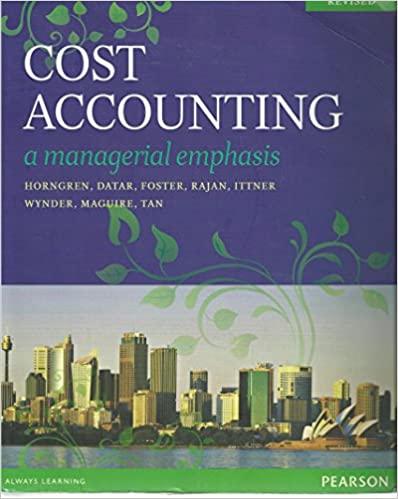










Exhibit 17.8 Profit Graph-Racketeer, Inc. $ 70,000 Sales at $ 9 60,000 Profit = $ 14,500 50,000 Total costs 40,000 S&A costs = $ 7,500 costs 30,000 Manufacturing costs 20,000 10,000 2.000 4,000 6,000 8,000 Number of Rackets Exhibit 17.9 Standard Costse-Racketeer, Inc. Per Racket Raw material $3.15 Frame (one frame per racket) Stringing materials: 20 feet at 3 per foot 0.60 Direct labor 1.20 Skilled: 1/8 hour at $9.60 per hour Unskilled: 1/8 hour at $5.60 per hour 0.70 Plant overhead Indirect labor 0.10 Power 0.03 Supervision 0.125 Depreciation 0.20b Other 0.15b Total standard cost per frame $6.25 a Standard costs are calculated for an estimated production volume of 8.000 units each month. b Fixed costs. Exhibit 17.10 Income Statement, March-Racketeer, Inc. RACKETEER, INC. Income Statement For the Month of March-Actual Sales revenue 10,000 rackets at $9 $90,000 Standard cost of goods sold 10,000 rackets at $6.25 62,500 Gross profit after standard costs $27,500 Variances Materials variance (490) Labor variance (392) Overhead variance (660) Gross profit $25,958 Selling and administrative expenses 7,200 Operating profit $18,758 Exhibit 17.11 Actual Production Data for March- Racketeer, Inc. Direct materials purchased and used 175.000 feet at 2.5 per foot Stringing materials Frames (some frames were ruined during production) 7,100 at $3.15 per frame Labor 900 hours Skilled ($9.80 per hour) Unskilled ($5.80 per hour) 840 hours Overhead Indirect labor $ 800 Power $ 250 Depreciation $1,600 Supervision $ 960 Other $1.250 Production 7,000 rackets (Copyright Michael W. Maher, 2012) "I just don't understand these financial statements at all!" exclaimed Mr. Elmo Knapp. Mr. Knapp explained that he had turned over management of Racketeer, Inc., a division of American Recreation Equipment, Inc., to his son, Otto, the previous month. Racketeer, Inc., manufactures tennis rackets. "I was really proud of Otto," he beamed. "He was showing us all the tricks he learned in business school, and if I do say so myself, I think he was doing a rather good job for us. For example, he put together this budget for Racketeer, which makes it very easy to see how much profit we'll make at any sales volume (Exhibit 17.8 ). As best as I can figure it, in March we expected to have a volume of 8,000 units and a profit of $14,500 on our rackets. But we did much better than that! We sold 10,000 rackets, so we should have made almost $21,000 on them." Another one of Otto's innovations is this standard cost system, said Mr. Knapp proudly. He sat down with our production people and came up with a standard production cost per unit (see Exhibit 17.9). He tells me this will let us know how well our production people are performing. Also, he claims it will cut down on our clerical work." Mr. Knapp continued, But one thing puzzles me. My calculations show that we should have earned profit of nearly $21,000 in March. However, our accountants came up with less than $19,000 in the monthly income statement (Exhibit 17.10 ). This bothers me a great deal. Now, I'm sure our accountants are doing their job properly. But still, it appears to me that they're about $2,200 short." "As you can probably guess," Mr. Knapp concluded, "we are one big happy family around here. I just wish I knew what those accountants were up to... coming in with a low net income like that." Requried: Prepare a report for Mr. Elmo Knapp and Mr. Otto Knapp that reconciles the profit graph with the actual results for March (see Exhibit 17.11). Show the source of each variance from the original plan (8,000 rackets) in as much detail as you can and evaluate Racketeer's performance in March. (Do not round intermediate calculations. Indicate the effect of each variance by selecting "F" for favorable, or "U" for unfavorable. If there is no effect, do not select either option.) Complete this question by entering your answers in the tabs below. Profit Variances Master Budget Materials and Fixed Variable Labor Reconciliation Comparison Overhead Overhead Variances Compute all cost variances that account for the difference in the profit measurement. Variance Material Labor Overhead Selling and administrative Total
Variances Profit Reconciliation Master Budget Comparison Materials and Labor Variances Variable Overhead Fixed Overhead Prepare profit reconciliation statement. Profit reconciliation Profit per chart Profit per Income Statement Profit Materials and Master Budget Variable Variances Labor Reconciliation Comparison Overhead Variances Compute the material price variance and labor efficiency variance. Fixed Overhead Price Variance Efficiency Variance String Frames Skilled Labor Unskilled Labor Variances Profit Master Budget Reconciliation Comparison Materials and Labor Variances Variable Overhead Fixed Overhead Compute variable overhead variances. Total Variable Overhead Variance Variable Overhead Variances Profit Master Budget Reconciliation Comparison Materials and Labor Variances Variable Overhead Fixed Overhead Compute fixed overhead variances. Price Variance Production Volume Variance Fixed Overhead Variances Profit Reconciliation Master Budget Comparison Materials and Labor Variances Variable Overhead Fixed Overhead Prepare profit reconciliation statement. Profit reconciliation Profit per chart Profit per Income Statement Profit Materials and Master Budget Variable Variances Labor Reconciliation Comparison Overhead Variances Compute the material price variance and labor efficiency variance. Fixed Overhead Price Variance Efficiency Variance String Frames Skilled Labor Unskilled Labor Variances Profit Master Budget Reconciliation Comparison Materials and Labor Variances Variable Overhead Fixed Overhead Compute variable overhead variances. Total Variable Overhead Variance Variable Overhead Variances Profit Master Budget Reconciliation Comparison Materials and Labor Variances Variable Overhead Fixed Overhead Compute fixed overhead variances. Price Variance Production Volume Variance Fixed Overhead

















